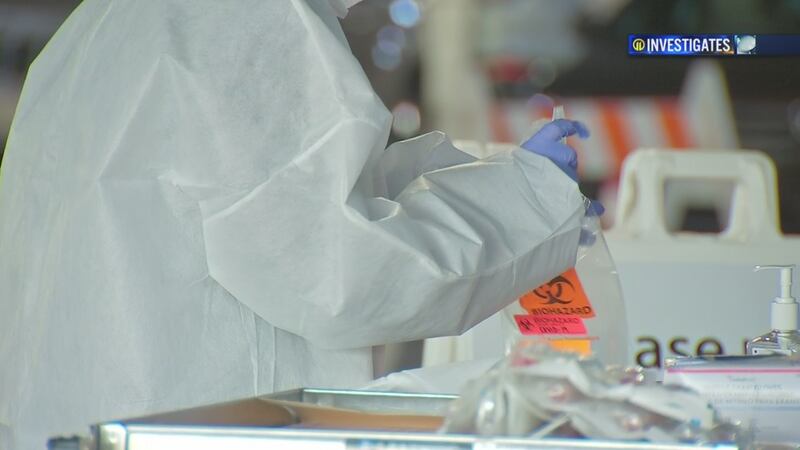Federal officials are rushing to get COVID-19 testing and treatments to patients quickly.
However, some medical experts are raising concerns that it may be happening too fast, particularly when it comes to antibody testing.
Have questions about the spread of the coronavirus? We have an entire section dedicated to coverage of the outbreak. CLICK HERE for more.
An antibody test determines if a person has the right protective proteins to fight off COVID-19.
“Many of us worry that these tests are being rolled out too quickly, too prematurely and without adequate oversight and that we are going to have unintended consequences,” said UPMC Clinical Laboratories Medical Director Dr. Alan Wells.
Those unintended consequences include false positive test results, making someone incorrectly believe they are immune to COVID-19.
The concern for Wells starts with the Food and Drug Administration, which has been working to get tests to the public as fast as possible using its Emergency Use Authorization.
But the FDA is not independently verifying the testing data provided by the companies and healthcare systems, leading to concerns about reliability.
In a release from April 18, FDA Commissioner Stephen Hahn said regulations on antibody tests were relaxed to give laboratories and healthcare providers “early access to these tests with the understanding that the FDA has not reviewed or authorized (or “approved”) them.”
The release added the tests should not be used for diagnosing COVID-19.
In an email to 11 Investigates, a spokeswoman highlighted information on the FDA's website but did not respond to interview requests.
The lack of oversight is raising concerns with some members of Congress, including Rep. Mike Doyle (D-Pittsburgh).
He believes the FDA is in a difficult position balancing proper oversight with availability, but he wants to see more done.
“Everybody needs to take these kinds of tests with a grain of salt until we have further validation and further studies on it,” Doyle said.
What those studies show could also have an impact on how quickly Pennsylvania reopens its economy, with much of that decision relying on diagnostic test results.
Duquesne University Professor Alison Colbert specializes in public health.
She said close to 100% accuracy for diagnostic testing for COVID-19 isn’t a requirement when treating patients since there’s no therapy or cure and patients are already told to self-isolate if they’re showing symptoms.
However, testing accuracy becomes more critical as state leaders decide the current scale of the pandemic and when it's safe to reopen.
“Ultimately, the quality of those decision is directly dependent on the quality of that data.”
TRENDING NOW:
© 2020 Cox Media Group









